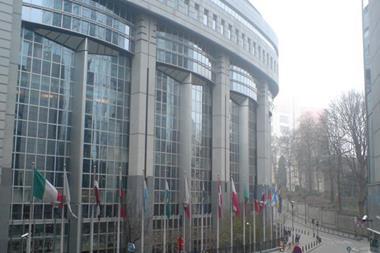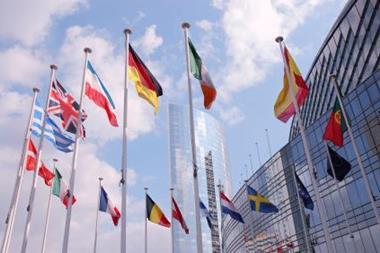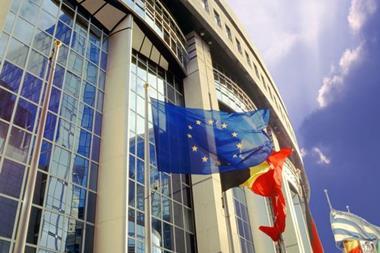EU competition commissioner Neelie Kroes has vowed to get tough on companies that don't play fair. Neill Blundell says the EU and other regulators are giving a stark warning to boardrooms
The current message to large organisations emanating from both the EU and the UK Office of Fair Trading (OFT) about involvement in cartel activity is ‘clean up your act or face both financial and criminal consequences’.
It appears that neither the EU or the OFT will shy away from making an example of a large organisation, and the OFT will seek criminal sanctions, including imprisonment, for anyone deemed to be involved in such activity. The OFT will seek extradition of individuals if they are not based in the UK.
As reported in the Financial Times on 7 November 2007, the OFT chief executive John Fingleton has stated that the focus will now shift to high profile cases where large organisations have abused their dominant market position and also been involved in cartel activity. He stated: ‘We are out hunting for them’.
The OFT’s hunt for ‘Microsoft-style’ cases, as it describes them, comes after a time when countries such as the UK traditionally paid little attention to market dominance cases. The use of the term ‘Microsoft-style’ comes from the anti trust campaign waged by the EC over Microsoft’s Windows monopoly.
The OFT’s warning should give boardrooms sleepless nights. One only has to look at those companies that have already been fined for such activity in the last few years to understand that we are not referring to a few rogue companies but to household names with good reputations.
Companies within the EU can face criminal and civil sanctions in the domestic market in which the activity is alleged to have occurred, as well as financial penalties at a European level if a breach of Article 81 of the European Treaty is proved.
Don’t breach Article 81 The EU, under Article 81 of the EEC Treaty, has the power to combat cartels and can impose a financial penalty of up to 10% of a company’s worldwide turnover.
Article 81 states: ‘The following shall be prohibited as incompatible with the common market: all agreements between undertakings, decisions by associations of undertakings and concerted practices which may affect trade between member states and which have as their object or effect the prevention, restriction or distortion of competition within the common market, and in particular those which:
(a) directly or indirectly fix purchase or selling prices or any other trading conditions
(b) limit or control production, markets, technical development, or investment
(c) share markets or sources of supply
(d) apply dissimilar conditions to equivalent transactions with other trading parties, thereby placing them at a competitive disadvantage
“The warning should give the boardroom sleepless nights
(e) make the conclusion of contracts subject to acceptance by the other parties of supplementary obligations which, by their nature or according to commercial usage, have no connection with the subject of such contracts.’
Not only can the EU impose fines, but any firm or individual that has suffered damage due to the existence of a cartel can seek civil redress for their losses by claiming compensation before a court in a member state where the loss occurred. In other words they can seek civil redress for their losses. In addition to the powers of the EU to fine a company, and the available civil remedies to any victim of such activity in a member state, individual member states have also enacted their own domestic legislation to seek criminal sanctions.
In the UK, the OFT and the Serious Fraud Office can investigate and prosecute such activity under the Enterprise Act 2002 (EA 2002). Section 188 of the EA 2002 states that an individual is guilty of an offence if he dishonestly agrees with one or more persons to make or implement, or to cause to be made or implemented, arrangements between at least two undertakings which would fix prices, limit or prevent supply, limit or prevent production, divide markets or customers or rig bids.
The EA 2002 gives a court the power to impose a sentence of up to five years imprisonment. It also amended the Company Directors Disqualification Act 1986 to permit the disqualification of a director where the company of which he or she is a director has committed a breach of competition laws and his/her conduct as a director makes him/her unfit to be concerned in the management of a company (S204(2)).
Increased cartel activity?
At an EU level, the Commission has imposed its ten highest cartel fines in the last six years. The largest fine ever imposed by the EU was this year and involved ThyssenKrupp. During 2007 both Siemens AG and Heineken NV have had substantial fines imposed upon them. The EU’s top anti trust regulator has maintained that 2007 should be a record year for fines imposed. There is therefore much activity being investigated at a European level.
Companies are clearly not taking seriously the criminal threat to which they are exposing themselves. Even if a company budgets for large fines, its directors will not want to be imprisoned. It is true that for a criminal offence to occur there needs to be proof of ‘dishonesty’ and the offence can only occur in respect of horizontal agreements (ie agreements relating to products or services at the same level in the supply chain). Even so, companies will not want to face criminal investigations of this kind.
A report by Deloitte and Touche indicated that the threat of criminal penalties against directors of companies has far more power in deterring cartel activities than any other penalty that can be imposed. The report canvassed 202 UK companies and 234 competition lawyers in both London and Brussels and claims that for every OFT investigation into a merger, cartel or abuse of dominant position at least five other anti-competitive agreements are prevented from taking place.
The threat of extradition should also be a cause for concern. In the UK the offence is extraditable, so individuals could be extradited to the UK from countries that also apply criminal sanctions.
Individuals may also be extradited from the UK to face similar charges abroad such as in the US. Are prosecutions likely? The first successful criminal cartel trial before a judge and jury took place in Ireland in spring 2006.
The prosecution was undertaken by the Irish authorities for the fixing of heating oil prices in Galway City and Galway County. Fourteen pleaded guilty and one individual was found guilty by a jury. Fines were imposed and one of the individuals received a six month suspended jail term.
The success of the Irish authorities would suggest the OFT may well have a thirst for such a prosecution itself. Indeed its first action over market dominance has already commenced against the Cardiff Bus Company, which was offering a ‘no frills’ service with revenues so far below costs that it was impossible for any competitors to operate.
“The Commission has imposed its ten highest cartel fines in the last six years
The rhetoric coming out of the OFT suggests companies need to watch their own activities very carefully, and that any agreements that would appear to breach the EA 2002 will be investigated rigorously. Where it is felt appropriate, criminal prosecutions will follow. What can companies do if they are worried?
If a company believes it may have been involved in activity breaching the EA 2002, it should take immediate legal advice and consider seeking leniency under S190 (4) of the EA 2002. The success of this route is shown by the different ways in which British Airways and Virgin Atlantic have been treated by the OFT following its investigation into alleged price fixing.
British Airways has admitted that between August 2004 and January 2006, it entered an agreement with Virgin Atlantic over the surcharges which were added to ticket prices in response to rising oil prices. Over that period, the surcharges rose from an average of £5 to £60 per ticket for a typical BA or Virgin Atlantic long haul return flight.BA has been fined £121.5m this year.
Virgin Atlantic has escaped a fine because it managed to persuade the OFT that it qualified for full immunity under its leniency policy. Under that policy, a company which has been involved in cartel conduct and which is the first to give full details about it to the OFT will qualify for immunity from penalties in relation to that conduct. In addition, any employee involved in the price fixing will qualify for immunity from any criminal prosecution in relation to that conduct if they ‘blow the whistle’.
The OFT investigation was prompted after Virgin Atlantic came forward with the information about price fixing between itself and British Airways. The OFT’s investigation ran parallel with that of the Department of Justice in the US.
The OFT has indicated that, while its civil investigation into British Airways has been concluded and resolved with the imposition of the financial penalty, it is conducting a separate criminal investigation into whether any individuals dishonestly fixed the levels of the surcharges. If that is the case, they could certainly face action under the criminal law, either in the UK or the US.
Philip Collins, OFT chairman, said: ‘This case, and the substantial penalty imposed, will send an important message to business leaders about our intention to enforce the law, and serve to remind companies of the substantial risks involved if they are found to engage in such behaviour.’ What comes next?
In the past, many well known companies have had fines imposed upon them for cartel activities, either by the EC or by the civil courts in a member state.
The current change of emphasis by the OFT would suggest a greater emphasis being placed on criminal sanctions in the UK. No doubt other European countries are following this route, as shown by the successful prosecution in Ireland in 2006. Clearly, large companies need to be aware of this change in emphasis. They should ensure systems are in place to prevent them falling foul of the criminal law.
In the UK, Virgin Atlantic’s quick action in whistle blowing led to them escaping any penalty from the OFT. British Airways, in the meantime, not only has to pay a record civil fine, but is facing a lengthy criminal investigation into its activities.
Clearly, any high profile prosecution in an EU member state will, research suggests, have a much greater impact on preventing cartel activity than a pure financial penalty. The message to companies is--clean up your act or watch out!
High Profile Cases, January 2007
The EC fined 11 groups of companies a total of 750,712,500 Euro for participating in a cartel for gas-insulated switchgear (GIS) projects. The companies were ABB, Alstom, Areva, Fuji Electric, Hitachi Japan AE Power Systems, Mitsubishi Electric Corporation, Schneider, Siemens, Toshiba and VA Tech. For most of the duration of the infringement, a former Alstom subsidiary, bought by Areva four months before the end of the cartel, was jointly and severally liable with Alstom for the infringement.
Between 1988 and 2004, the companies rigged bids for procurement contracts, fixed prices, allocated projects to each other, shared markets and exchanged commercially important and confidential information. ABB received full immunity from fines under the Commission's leniency programme, as it was the first company to come forward with information about the cartel. The total fines imposed in this case made it the largest set of fines ever imposed on a single cartel, and the fine of 396,562,500 Euro on Siemens, Germany, constituted the largest ever fine that the Commission had imposed on a single company for a single cartel infringement.
The investigation started with surprise inspections in May 2004, which were prompted by an application for immunity lodged by ABB under the 2002 Leniency Notice. From at least 1988, when a written agreement between the members was adopted, the GIS suppliers informed each other of calls for tender for GIS and co-ordinated their bids in order to secure projects for the cartel members according to their respective cartel quotas. Alternatively, they would agree to respect minimum bidding prices.
The companies agreed that the Japanese companies would not sell in Europe, and the European companies would not sell in Japan. European tenders were usually allocated according to the cartel rules and the European projects won by cartel members outside their home countries were counted into agreed global cartel quotas. Thus the Japanese companies were also fined, despite their near-total absence from the market for GIS in Europe, because their agreement to abstain from bidding contributed directly to the restriction of competition.
Members of the cartel met regularly to discuss strategic issues, divide projects and prepare sham bids, in order to leave an impression of genuine competition. They also took sophisticated measures to keep their communications secret.
Postscript
Neill Blundell is a partner within the business and regulatory investigations group at law firm Russell Jones & Walker, www.rjw.co.uk


















No comments yet